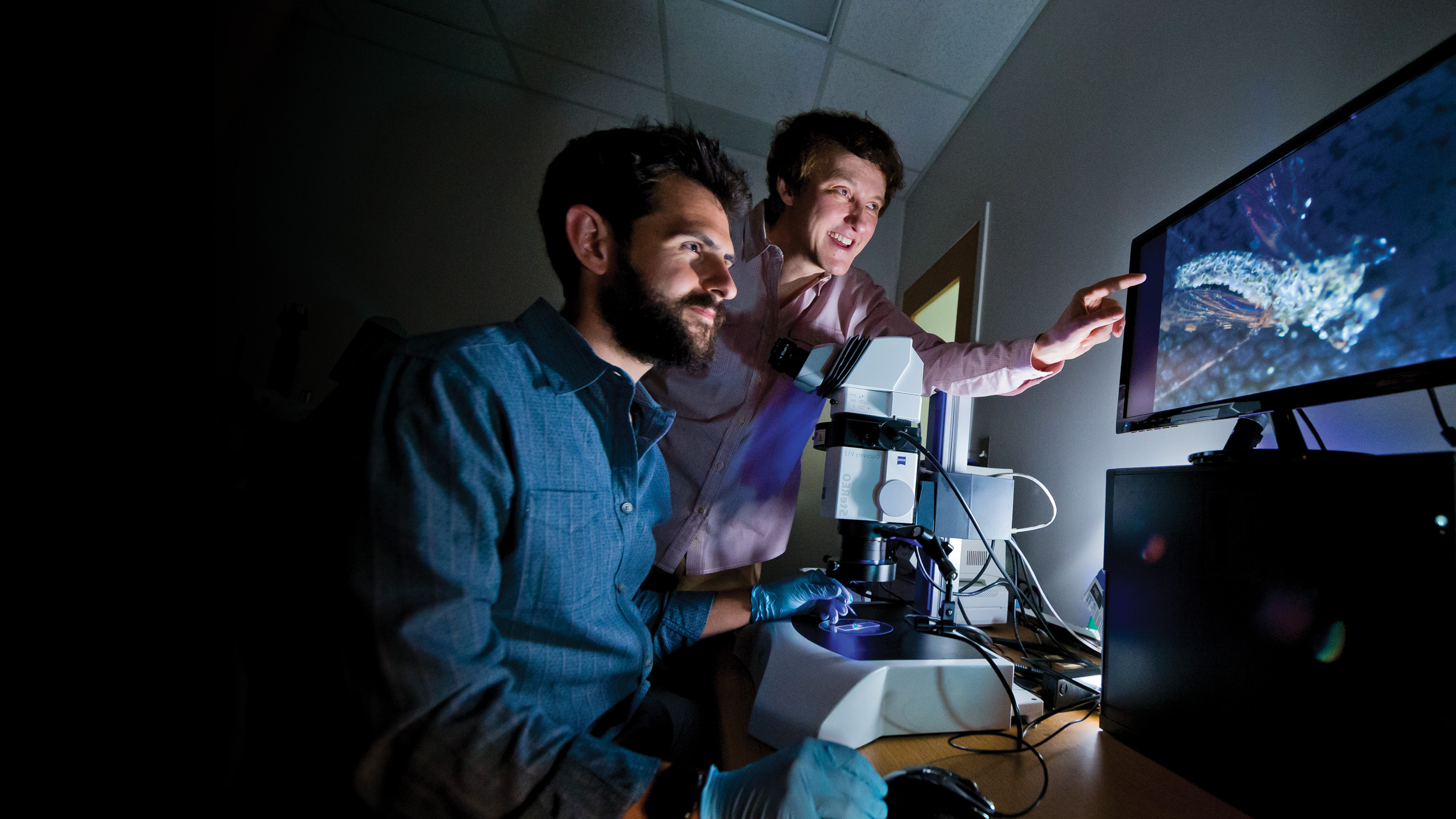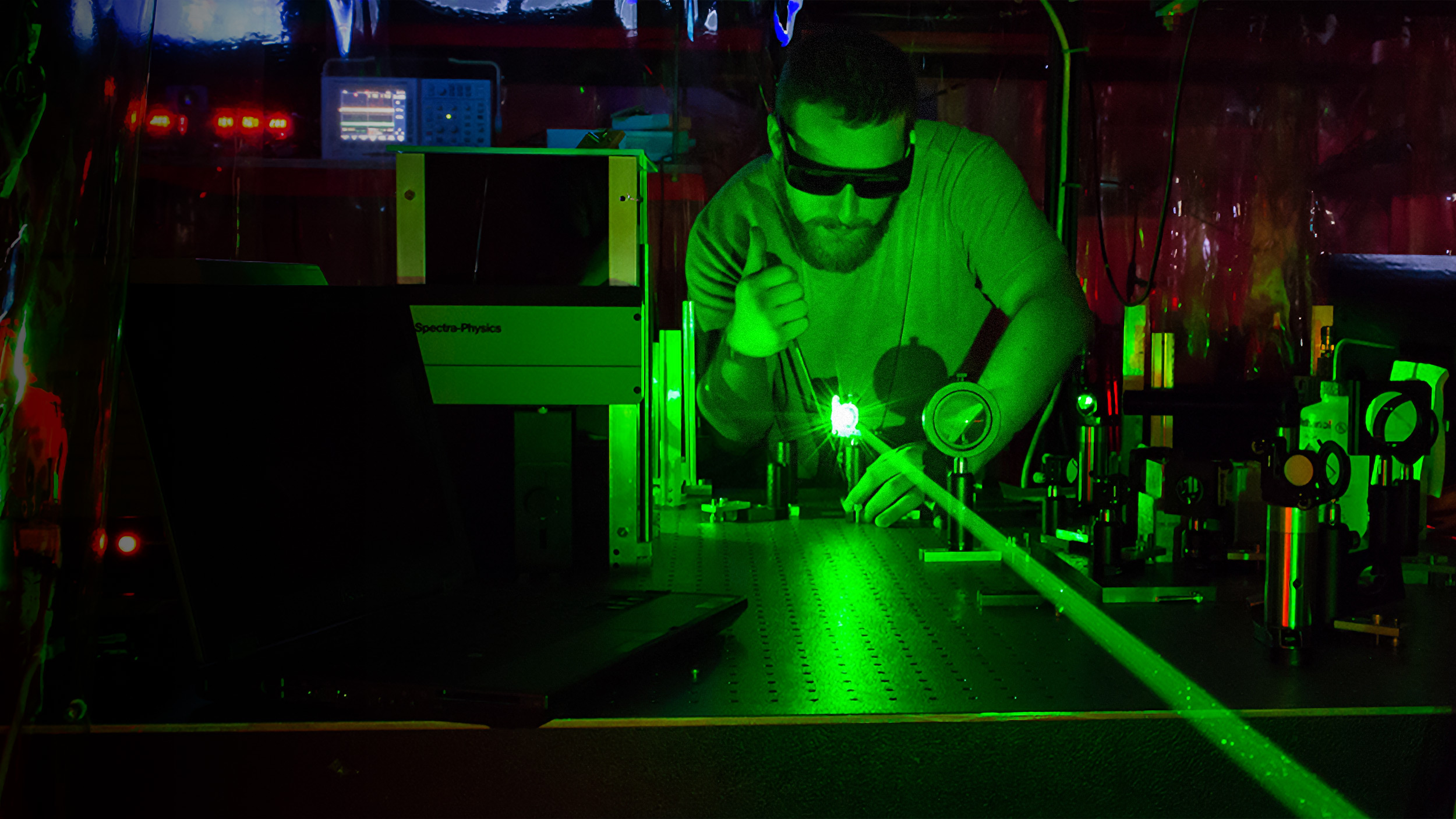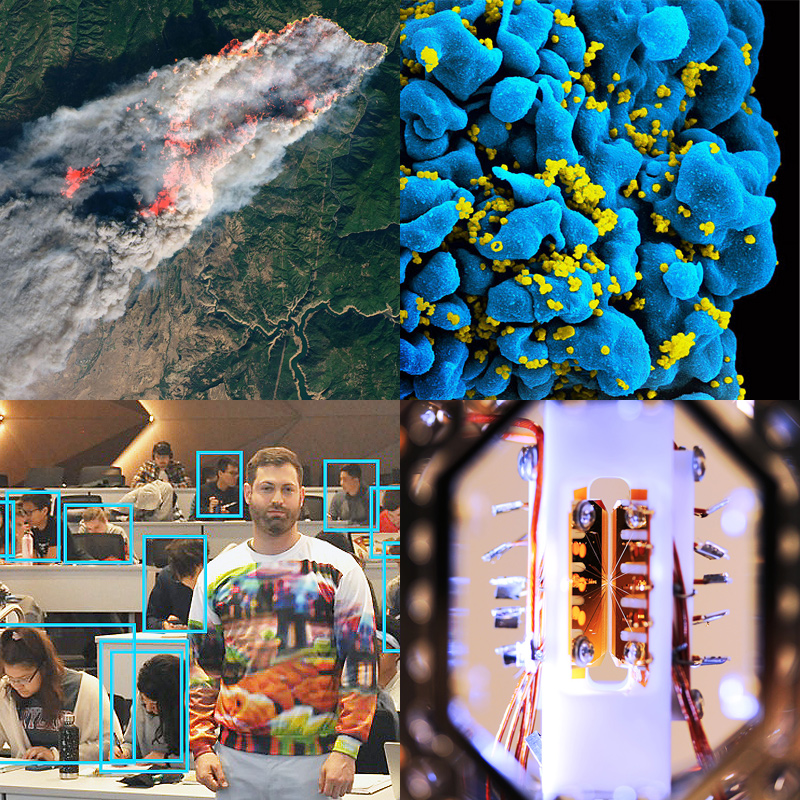



We see the signs everywhere—our future is in jeopardy. As Earth’s temperature rises, greenhouse gases reach record levels and severe weather events strike with frightening frequency, we must ask the question: What will it take to solve this grand challenge?
Our researchers are fiercely committed to the fight against global warming. These scientists are tapping into satellite data to predict crop-killing droughts before they happen, identifying trees that adapt to climate change instead of worsening it, and unraveling the complex relationship between airborne pollutants and weather conditions. Grand challenges demand bold ideas and real-world solutions. In CMNS, we lead Fearlessly Forward.
Globally speaking, humans now enjoy longer, healthier lives than at any point in history. We have come a long way since Hippocrates first advocated logic as a way to understand disease. But to understand disease is to appreciate that it works at a variety of scales. Fittingly, it is impossible to apply a one-size-fits-all approach to disease research.
Scientists in CMNS are tackling the dynamics of infectious and hereditary diseases at all scales, from complex multispecies conditions, such as malaria, to whole-body aging disorders; from the flu with its organ-specific infection pathway to the submicroscopic structure of disease-causing viruses and disease-fighting antibodies. From multispecies to the submolecular scale, CMNS researchers are fighting human diseases on multiple fronts.
Artificial intelligence is everywhere. It has worked its way into our daily lives, from voice assistants like Siri and Alexa to traffic apps that guide us around gridlock, cars that drive themselves and news stories that pop up on our social media feeds. And there’s no end in sight to the potential applications of machine learning—in fraud protection, health care, the stock market and more.
Researchers in CMNS work at the forefront of machine learning technology, where computers analyze data to identify patterns and make decisions with minimal human intervention. These faculty members are using machine learning for applications that touch many aspects of our lives—from weather prediction and health care to transportation, finance and wildlife conservation. Along the way, they are advancing the science of exactly how computers learn. And they’re asking important questions about the impact of machine learning on our everyday lives and society itself.
The University of Maryland is a powerhouse of quantum discovery, with decades of experience advancing a field that will help define our nation’s—and the world’s—future. Here, over 200 quantum scientists and engineers are exploiting the unique properties of quantum physics to usher in a new age of technology: quantum computers capable of currently impossible calculations, ultra-secure quantum networking and exotic new quantum materials.
Exploring space helps answer fundamental questions about the mysteries of the universe and the history of our solar system. CMNS astronomers, physicists, atmospheric scientists and geologists are all hard at work on the frontiers of space exploration. The college's close relationship with NASA's Goddard Space Flight Center enables faculty members and students to share research facilities and partner to advance our understanding of the universe.